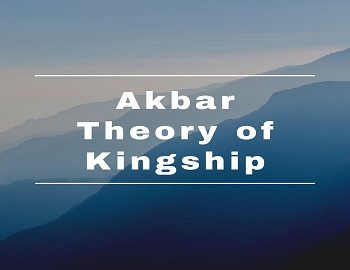Architect of German Unification:
Otto Von Bismarck was born into a prestigious, feudal family in Prussia. He was a very meritorious and wise person, but he disliked democracy. In other words, he was a stern antagonist of liberalism. In the middle of the 19th century, he admitted, “I fear the sentimentality of this age under which every enthusiastic rebel is considered a true patriot.” Considering democracy to be dangerous for Germany, he said, “I think an escape from democracy is the most essential of all things for the honor of Prussia. It is shameful to have links with democracy”. Bismarck’s thoughts are mentioned in his book “Reflections and Reminiscences” in these words, “I have always felt sympathy for the sovereign. In my childhood, I thought about justice that Harmodius, Aristogetn, and Brutus were criminals and Tell was a rebel and murderer. Prior to the Thirty Years’ War, I got irritated when anyone opposed the German prince, but I turned against the empire after Great Elector (1640-88)”. He despised the constitution and took it for a piece of waste paper. He was, therefore, personally delighted when the King of Prussia declined to accept the title of German Emperor.
Though Bismarck was friendly with prominent persons and orthodox people; yet he was determined to establish the freedom and independent policy of Prussia. He had realized how far the organization of the then German federation was disappointing. Therefore, Bismarck was contemplating ways which would convert the adverse perspectives of the federation into favorite factors for Prussia, so that, Prussia might take up the cause of unification of Germany. In fact, Bismarck did not hesitate in employing any policy to meet the needs of Germany. He always considered the needs and prestige of Germany above his own honor and prestige.
Bismarck entered politics in 1847. At that time, he was elected a member of the Joint Prussian Diet by the Emperor. At the same time, he got an opportunity of becoming a member of the National Assembly and the Constitutional Assembly. In 1851, the Emperor appointed Bismarck a representative of Prussia for the Frankfurt assembly where he represented Prussia for eight years successfully. He learned the subtle techniques of effective diplomacy during those eight years. His outlook on Austria underwent some changes during that period. Earlier he supported the cause of suppressing the revolution by way of getting cooperation from Austria. However, after some time, he awakened to the reality that the cooperation of Prussia and Austria was not possible as Austria did not place Prussia on an equal footing and tried to exercise its influence over the German federation by gaining the favor of small states of Germany. Bismarck realized that minor states were more inclined toward Austria than towards Prussia. He learned from his experience that Prussia could not become the sound foundation of Germany without defeating Austria. In 1859, Bismarck was sent to Saint Petersburg as an ambassador. By dint of his intelligence, he established a personal friendship with Tzar Alexader II of Russia. It was his first diplomatic achievement which proved very advantageous in the future. By remaining neutral at the time of the Crimean War, Bismarck confirmed his faith in Saint Petersburg which pleased the Russian Emperor and strengthened the bond of friendship. He made good use of Russia’s friendship during the war against France. In March 1862, Bismarck was sent to Paris as an ambassador. In France, he availed himself of the opportunity of strengthening relations with Napoleon III and his ministers and making a close study of their policies. After a few months, the constitutional deadlock ensued in Prussia and the Prussian king immediately called him back and appointed him the Chancellor of Prussia. He always ignored the very existence and opposition of the parliament. He clearly expressed that, “Not by speeches and majority votes are the great questions of the day decided- that was the great blunder of 1848 and 1849- but by blood and iron.”
Bismarck was of the opinion that the unity of Germany could only be achieved by war. For this purpose, he adopted some important measures to increase the power and numerical strength of the Prussian army. He knew very well that the Prussian army had to fight the wars to make Germany a nation. Since the efforts of the people had failed in this respect till 1848, they gladly accepted the policy of blood and iron adopted by Bismarck for the national unification of Germany.









Comments (No)